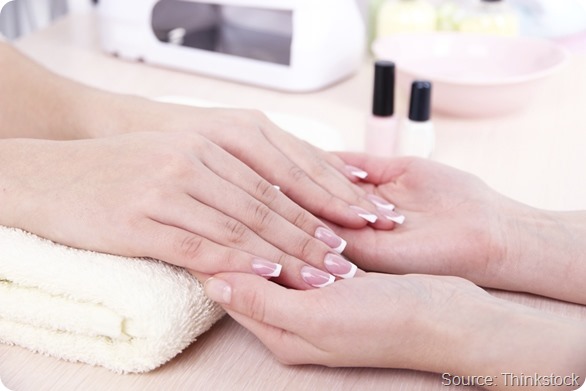People who regularly have their nails dried by UV lamps after a manicure may benefit from wearing sun block during the procedure to protect against any risk for cancer, say researchers.

Although the risk of cancer developing is small, some lamps emit more UV radiation than others, with higher wattage lamps posing a greater risk than lower wattage devices, report Lyndsay Shipp (Medical College of Georgia, USA) and colleagues.
The cancer risk associated with the use of UV lamps has previously been a subject of concern, but no studies have yet been based on randomized light sampling from commercial salons.
“Our study differed from those previously published by highlighting the variety of UV light lamps used in commercial nail salons as well as the varying UV irradiance emitted within each individual device,” explains Shipp.1
The researchers measured the UV-A irradiation produced by 17 different nail drying devices across 16 salons as well as recording the bulb wattage and number of bulbs per device. They also calculated the energy density delivered by the lights based on UV-A irradiance and compared it with the energy density known to cause DNA damage to skin cells.
As reported in JAMA Dermatology, the team found significant differences in the amount of UV-A emitted by the lamps, but generally, the higher the lamp’s wattage, the more UV-A radiation was emitted.
Further analysis showed that it would take an average of 11 uses for the lamps to emit enough UV-A to cause DNA damage and increase the risk of cancer developing. However, the exposure time needed to increase the risk for cancer varied from 8 minutes to 208 minutes, depending on the machine used.
“Our data suggest that, even with numerous exposures, the risk for carcinogenesis, remains small,” says Shipp. “That said, we concur with previous authors in recommending the use of physical blocking sunscreens or UV-A protective gloves to limit the risk of carcinogenesis and photoaging,” she adds.
Sources:
- Shipp et al. Further Investigation Into the Risk of Skin Cancer Associated With the Use of UV Nail Lamps. JAMA Dermatol. Published online April 30, 2014. doi:10.1001/jamadermatol.2013.8740 available at: http://archderm.jamanetwork.com/article.aspx?articleid=1862050
- http://media.jamanetwork.com/news-item/research-letter-examines-uv-nail-salon-lamps-risk-of-skin-cancer/